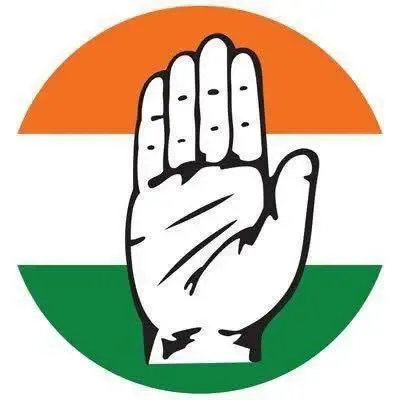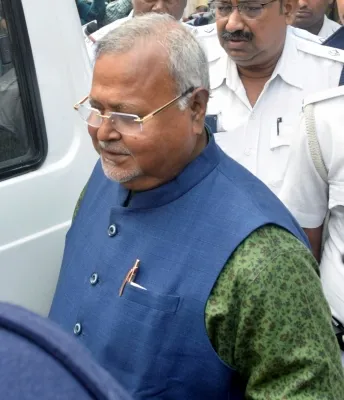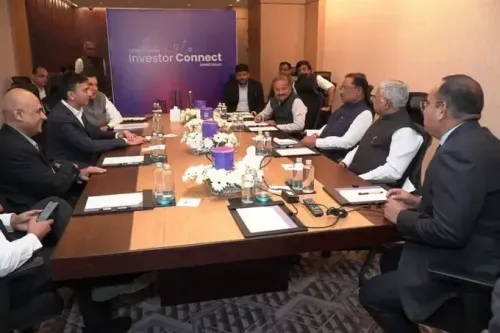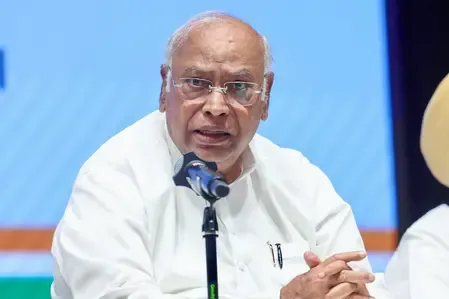Gujarat Minister Showcases Power and Green Energy Progress
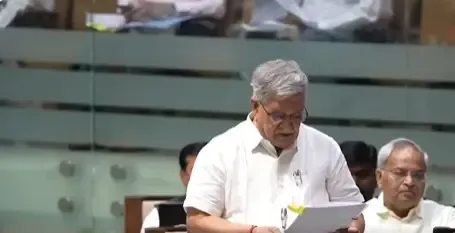
Synopsis
Key Takeaways
- Gujarat's electricity distribution firms received 'A+' ratings.
- The state aims for 500 GW of green energy capacity by 2030.
- Gujarat contributes 26% of India's wind power capacity.
- Significant investments in solar rooftop systems and farmer initiatives.
- Focus on electric vehicles and disaster resilience improvements.
Gandhinagar, March 26 (NationPress) In a recent discussion regarding the budgetary proposals for the Energy and Petrochemicals Department within the Gujarat Assembly, State Energy Minister Kanu Desai announced that the four electricity distribution firms in the state achieved 'A+' ratings from the Union Power Ministry, with Dakshin Gujarat, Madhya Gujarat, and Uttar Gujarat companies securing the top three positions.
Minister Desai also showcased that Gujarat's JETCO (transmission Company) received the Best Transmission Utility Award 2024 from the Central Board of Irrigation and Power (CBIP).
Highlighting the state government's dedication to clean and green energy, Desai pointed out India's commitment to diminish dependence on coal and gas-based power while advancing renewable energy initiatives.
India aims for a target of 500 GW of green energy capacity by 2030, which will propel Gujarat's sustainable growth and guarantee affordable electricity for everyone, as stated by the Minister.
Gujarat's goal is to attain zero carbon emissions by 2047, in line with India's Net Zero target for 2070, he added.
The state is a leader in renewable energy, contributing 26 percent of India's total wind power capacity, with an installed capacity of 12,584 MW, as per the Minister.
Moreover, Gujarat accounts for 18 percent of India's solar power generation, boasting an installed capacity of 18,125 MW, he further mentioned.
The total renewable energy capacity in Gujarat is 32,924 MW, representing 15 percent of India's total renewable energy capacity of 2,14,677 MW, he noted.
The Minister proudly declared that Gujarat earned the Highest Achiever State Award at the Global RE-Invest Summit 2024 for its substantial contributions to wind and solar power.
To facilitate renewable energy projects, the state has introduced the Akshay Urja Setu Portal, which allows a single-window clearance system for investors, Minister Desai added.
Gujarat is also significantly contributing to the Mission Green Hydrogen, working towards India's goal of generating 5 million metric tons of green hydrogen by 2030, he mentioned.
The PM Surya Ghar Yojana was highlighted as a program to promote solar rooftop installations, with Gujarat leading nationwide efforts by installing solar rooftops in over three lakh homes, which accounts for 40 percent of India's total installations, Minister Desai revealed.
Under the Surya Gujarat Yojana, 5.21 lakh homes in the state have solar rooftop systems, generating 2073 MW of electricity—the highest in India.
Additionally, the Minister noted that Gujarat has been offering substantial electricity bill relief to its consumers.
In March 2024, the state cut fuel charges by 50 paise per unit, benefiting 1.5 crore consumers and saving Rs 1,057 crore, he added.
A further reduction of 40 paise per unit in December 2024 provided an additional relief of Rs 947 crore, he stated.
Gujarat's per capita electricity consumption has risen from 953 units in 2002 to 2,479 units in 2024, outpacing India's average of 1,331 units, as per the Minister.
Over the past 22 years, Gujarat's peak electricity demand has surged by 329 percent, increasing from 7,743 MW in 2002 to 25,502 MW in 2024, he indicated.
The state government has also prioritized farmers, allocating Rs 2,175 crore under the Kisan Suryodaya Yojana to provide daytime electricity to 97 percent of Gujarat's villages, the Minister stated.
Additionally, under the PM Kusum Yojana, farmers in off-grid areas are receiving solar-powered irrigation pumps to replace diesel pumps, he elaborated.
Gujarat's transmission and distribution network is undergoing upgrades, with a budget of Rs 6,830 crore for 96 new substations and 3,170 circuit transmission lines, he noted.
To improve disaster resilience, Rs 100 crore has been allocated for underground cabling in cyclone-prone coastal areas, he stated.
The state is also emphasizing electric vehicles (EVs), with a budget of Rs 50 crore to expand EV charging stations under the Viksit Gujarat 2047 initiative, the Minister concluded.
Gujarat leads in natural gas distribution, with GSPC (Gujarat State Petroleum Corporation) being the second-largest gas trading company in India, he stated.

